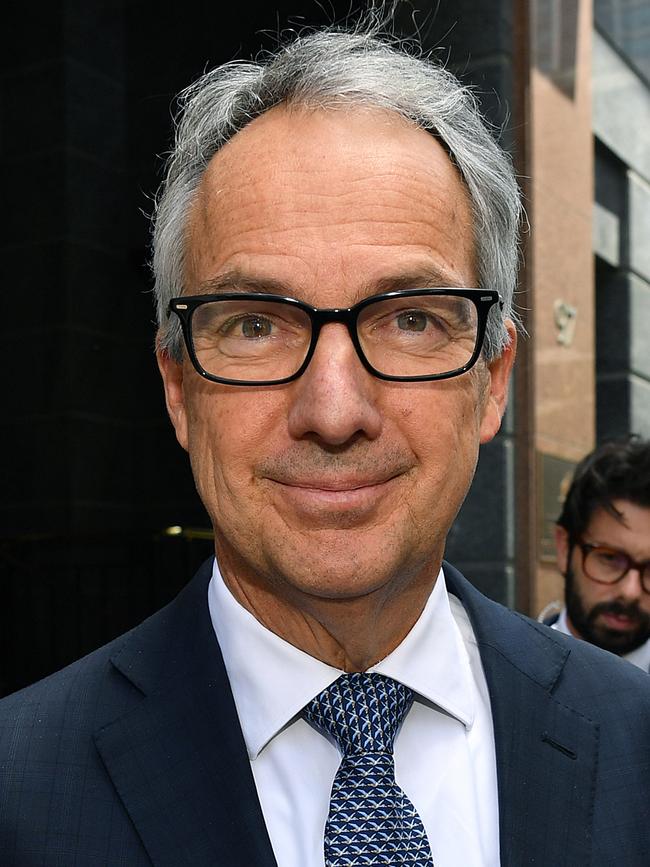Summit chance for Australia to raise trade, maritime security and rule of law
The ASEAN-Australia summit is being framed as a chance for Anthony Albanese to raise maritime security, the rule of law in the South China Sea and the need for secure supply chains.

The ASEAN-Australia special summit in Melbourne is being framed as a chance for Anthony Albanese to raise maritime security, the rule of law in the South China Sea and the need for secure supply chains in his talks with regional leaders, while also expanding opportunities for economic engagement.
The summit, which will include bilateral meetings with the leaders of 10 of the 11 nations from the Association of South East Asian Nations, is also being talked up as a “call to action” for business following the launch in September of Australia’s new Southeast Asia economic strategy to 2040, a process led by former Macquarie Bank boss Nicholas Moore.
Rory Medcalf, head of the Australian National Security College at the Australian National University, urged the Prime Minister to make engagement with Indonesia and Vietnam his priorities and suggested the “tough speech” last week by Philippines President Ferdinand Marcos Jr to the Australian parliament “provides cover for a Melbourne dialogue that could prove more forthright than typical ASEAN caution”.
Mr Albanese’s first key meeting during the three-day summit will be with the Malaysian President Anwar Ibrahim, who will be greeted to a ceremonial welcome at Government House in Melbourne before bilateral talks and a joint press conference.
Mr Ibrahim, Mr Marcos, Laotian Prime Minister Sonexay Siphandone and Vietnamese Prime Minister Pham Minh Chinh will be treated as official guests of the Australian government and have additional programs over the week, although Mr Albanese will meet with all his regional counterparts.
Mr Albanese said on Sunday the leaders of Timor Leste and New Zealand would also be attending the summit, arguing that he would be seeking to achieve a “benefit for Australia in terms of our economy, but also in our uncertain world, and national security interests as well”.
Professor Medcalf, who will address the summit on Monday on the maritime outlook in Southeast Asia, told The Australian the “very fact of this summit dispels the falsehood that Australia’s diplomacy is somehow out of step with its Southeast Asian neighbourhood”.
He said Mr Albanese and Foreign Minister Penny Wong had proved they could “progress AUKUS while still being a respected regional power”.
“This week’s diplomatic festival in Melbourne will also be a chance for serious steps in translating Senator Wong’s vision of strategic equilibrium into something that engages a growing number of Southeast Asian countries in more than talk when it comes to managing Chinese coercion and the potential for a second Trump administration,” he said.
“Maritime security, fisheries stewardship, the rule of law in the South China Sea, education for emerging leaders, and the securing of economic supply chains in the event of a future conflict – all these should be on the agenda in the leaders’ talks.”


Mr Moore on Monday will provide an update on his regional strategy, which said Australia could triple two-way trade with the region to $534bn a year by providing raw materials for its growth, targeting its burgeoning middle class and using Australians’ superannuation savings to build its infrastructure.
Leigh Howard, chief executive of Asialink Business at Melbourne University, said there were opportunities to partner with the region in new and emerging industries in the digital and green economies. “I do see this as a call to action,” he said. “And really raising awareness for Australian business and Australian society more broadly about the relevance and importance of a growing Southeast Asia.”
Mr Howard said there was a need to raise business awareness of opportunities in the region but also in building capabilities, arguing businesses were “tentative because they are not sure how to take the first steps”. Of almost 60,000 companies that export, just 22 per cent trade with ASEAN nations despite the bloc being Australia’s second-largest trading partner and accounting for $178bn in bilateral trade – more than with Japan, the US or the EU.








To join the conversation, please log in. Don't have an account? Register
Join the conversation, you are commenting as Logout